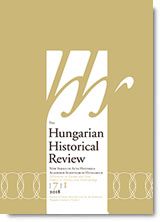Ethnonyms and Early Medieval Ethnicity: Methodological Reflections
Ethnonyms and Early Medieval Ethnicity: Methodological Reflections
Author(s): Walter PohlSubject(s): Ethnohistory, 6th to 12th Centuries
Published by: Magyar Tudományos Akadémia Bölcsészettudományi Kutatóközpont Történettudományi Intézet
Keywords: ethnonyms; early medieval ethnicity; Longobards; Goths; gentes
Summary/Abstract: The paper deals with the significance of ethnonyms for the study of early medieval ethnicity. The historiographic sources are full of names of peoples, and endow them with collective agency. That may not prove that all of these peoples had strong ethnic identities. But it attests to the general use of ethnicity as a cognitive device to differentiate between large social groupings who were relevant actors on the political scene. In this scheme, ethnonyms are fundamental. ‘Ethnicity’ as a system of distinctions between collective social actors and ‘ethnic identity’ as the result of a series of identifications are of course closely linked, but they represent different aspects of ‘the ethnic’. Therefore, ethnonyms do not necessarily reflect ethnic self-identification of the group concerned, although they often do. What they attest to is some shared belief that humans can be distinguished by ethnonyms, that is, on the basis of ‘natural’ affiliations that people are born with.
Journal: The Hungarian historical review : new series of Acta Historica Academiae Scientiarum Hungaricae
- Issue Year: 7/2018
- Issue No: 1
- Page Range: 5-17
- Page Count: 13
- Language: English

